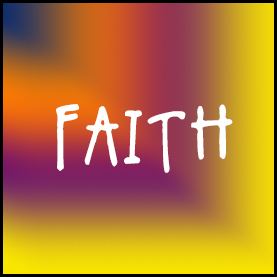 Six leaders, even counter-phobic Sixes, engage in cowardice, which are thoughts of doubt and worry that cause them to second guess themselves and create multiple alternative scenarios. Some Sixes do this so quickly, they hardly notice it; some call this creative problem solving; and others simply call it worry. To move from cowardice to faith is challenging for Sixes because moving to faith requires faith, which is what Sixes may have in short supply. Faith refers to the belief that both the person, him- or herself (the Six), and others can capably meet life’s challenges as they emerge, rather than having to pre-plan for most contingencies. Faith also means a deep acceptance that there is certainty and meaning in the world and all things can be handled.
Six leaders, even counter-phobic Sixes, engage in cowardice, which are thoughts of doubt and worry that cause them to second guess themselves and create multiple alternative scenarios. Some Sixes do this so quickly, they hardly notice it; some call this creative problem solving; and others simply call it worry. To move from cowardice to faith is challenging for Sixes because moving to faith requires faith, which is what Sixes may have in short supply. Faith refers to the belief that both the person, him- or herself (the Six), and others can capably meet life’s challenges as they emerge, rather than having to pre-plan for most contingencies. Faith also means a deep acceptance that there is certainty and meaning in the world and all things can be handled.
Hope and faith, though interconnected, are two different things. Faith is a belief in the here and now that one can have complete trust, confidence, and certainty. Hope deals with the future; it is a desire for something combined with a companion expectancy. Sixes have a great deal of hope. They hope for the best and really want this. But, they plan for the worst as a way to remove all obstacles to this desired future, a way to try to make manifest their deeply held hope. This over-contingency planning is actually a lack is faith in themselves, others and circumstances.
The following is a serious story about a Six leader who is a mix of phobic (palpably demonstrating fear) and counter-phobic (going against the fear with strength). Karen was known to ask more “What if” questions than anyone else in the room, but only when she was a management team member, not when she was the team leader. When in a leadership role, Karen had already thought through all the contingencies she could imagine prior to any meeting. As a result, she used meetings to ask others what they were thinking, an approach akin to collective problem anticipation. In Karen’s words, “When you get a bunch of smart people in a room, collectively they are smarter than any individual.”
Although Karen loved challenges, and the bigger the better, she was not prepared for the biggest one of her career. At the time, she was working as a senior executive in the airline industry and then came 9/11. Her area of functional responsibility was a direct path to the tragedy that happened that day; she was in charge of sorting out what had occurred, when, who, why and more. Although she may have felt anxiety internally, Karen showed no doubt in the midst of major uncertainty and took a leap of faith. She could, with her able team, figure it out and they did! No doubt, no uncertainty, and no wavering, they moved forward, did what they had to do, and did it well.
Karen doesn’t talk about this time in her career, not because she won’t, but because of national security issues. But there were some outcomes that she will discuss. Karen now believes (has the faith) that she and others can handle just about anything. What is the other by-product? Karen still loves challenges, the bigger the better, the more complex, the more interesting. But she no longer craves them to prove she’s up to being able to tackle whatever comes her way just to prove she can. She loves the challenge because she’s really good at it!

Comments are closed.